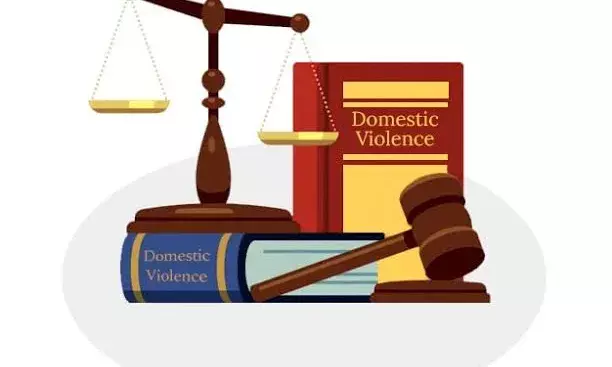The Dual Imperative: Strengthening Domestic Violence Laws and Preventing Their Misuse
Domestic violence laws in India need to balance protection with fairness. Here's how to strengthen laws and prevent misuse.;

Domestic violence is a grim reality faced by many individuals, predominantly women, across India. It is a manifestation of systemic patriarchy, social inequalities, and unchecked abuse of power within domestic settings. To address this, India introduced the Protection of Women from Domestic Violence Act (PWDVA), 2005, aimed at safeguarding women from physical, emotional, sexual, and economic abuse. However, concerns over the misuse of these laws have raised questions about their fairness, effectiveness, and potential to cause harm to the innocent.
Domestic violence is a global concern, but its prevalence in India is alarming. According to the National Crime Records Bureau (NCRB), 31.4% of reported crimes against women in 2022 pertained to cruelty by husbands or their relatives. This reflects the persistence of domestic violence despite societal and legal advancements.
The PWDVA, 2005, was a landmark step, providing a broad definition of domestic violence and mechanisms such as protection orders, residence orders, and monetary relief. The Act also empowers women to seek legal recourse without necessarily filing criminal charges, reflecting a victim-centric approach.
The National Commission for Women (NCW) reported 6,305 domestic violence complaints in 2023, constituting a significant portion of the 28,811 total complaints about crimes against women. This highlights the continued relevance of such protective legislation in addressing gender-based violence in India.
While laws like the PWDVA and Section 498A of the Indian Penal Code (IPC) serve to protect women, their misuse has emerged as a contentious issue. False allegations, though relatively rare, can have severe consequences, including wrongful arrests, loss of reputation, and emotional trauma for the accused.
The Supreme Court, in Arnesh Kumar v. State of Bihar (2014), highlighted the misuse of Section 498A, cautioning against automatic arrests without preliminary investigation. Similarly, in Rajesh Sharma v. State of UP (2017), the Court proposed safeguards such as the establishment of Family Welfare Committees to scrutinize complaints before legal proceedings.
However, such measures also drew criticism for potentially diluting the protective intent of these laws and risking delays in justice for genuine victims. This duality underscores the need for a balanced approach to prevent both domestic violence and the misuse of legal provisions.
NCRB data suggests a significant proportion of cases under Section 498A result in acquittals or are found to be false upon investigation. While this does not imply widespread misuse, it underscores the necessity of safeguards to ensure justice for all parties.
For instance, a report published in The Hindu noted that approximately 80% of cases under Section 498A end in acquittals, highlighting the importance of proper scrutiny during investigations.
Addressing the Dual Challenges
1. Strengthening Legal Safeguards
• Rigorous Screening: Implement pre-litigation mediation to filter genuine cases and discourage false complaints.
• Professional Training: Equip police and judicial officers with gender-sensitive training to handle complaints judiciously.
2. Gender-Neutral Legislation
Domestic violence laws should evolve to address abuse against men, children, and the elderly. Countries like the UK have gender-neutral domestic abuse laws, offering valuable models for India to consider.
3. Enhancing Support Systems
• Integrated Shelters: Provide safe spaces for victims, coupled with counseling, legal aid, and employment assistance.
• Helplines and Awareness Campaigns: Increase accessibility to support services and educate the public about the gravity of domestic violence and the repercussions of false accusations.
4. Judicial Oversight
• Fast-Track Courts: Establish dedicated courts for domestic violence cases to ensure timely justice.
• Case Monitoring: Regularly review pending cases to identify trends and address procedural delays.
5. Public Awareness
Educate society on the severity of domestic violence and the ethical responsibility to uphold the integrity of the legal system. Awareness campaigns must emphasize the availability of redressal mechanisms for both victims and falsely accused individuals.
Domestic violence laws in India are indispensable for protecting vulnerable individuals and fostering a society that respects human dignity. However, their potential misuse calls for systemic reforms to uphold justice for all. A nuanced approach, combining strict enforcement, rigorous oversight, and public awareness, is essential to balance protection with fairness. By fostering an equitable legal framework, India can ensure that these laws serve their intended purpose without becoming instruments of injustice.
Through collaboration between the judiciary, legislature, and civil society, the dual challenges of addressing domestic violence and preventing legal misuse can be tackled effectively, contributing to a just and compassionate society.
Suresh Tripathi, Advocate

